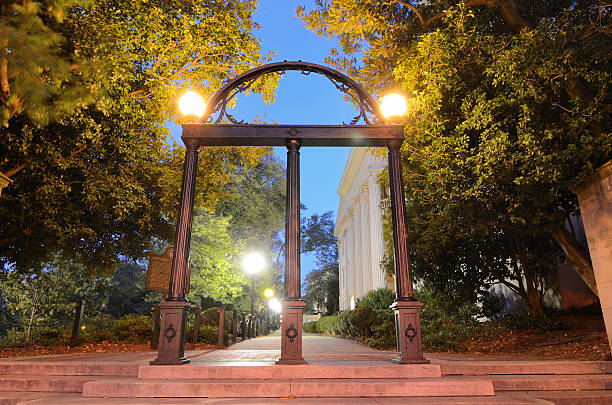Finding suitable housing is one of the top concerns for international students at UGA, as having a place to call home is essential for a sense of security during their studies abroad. While the University of Georgia mandates that first-year students reside on campus, on-campus living may not suit everyone, especially for upper-level students seeking independence or a more enriching college experience. If you are one of them grappling with off-campus housing decisions, I hope this article will provide valuable guidance to help you secure a perfect living space.
Steps to Clarity in Rental Goals
According to Allegiant Property Management team, once you’ve decided to live off-campus, it’s essential to establish a clear set of requirements for your accommodation. Begin by listing your needs, such as property type, rental price, distance from campus, available furnishing and amenities, lease term, and the suitability of potential housemates. By prioritising these factors according to their importance, you can effectively target your search and find a residence that aligns closely with your preferences and lifestyle.
Property Type
First, it’s essential to clarify whether you’re looking to rent an apartment or a house. University of Georgia off-campus housing includes student apartments Athens GA, non-student apartments, and private houses. There are affordable and luxury options. Most students opt for student apartments, as these are a better fit for their needs and are more accommodating for those without a stable income.
Price
You should set an acceptable rental price range based on your financial capabilities. According torental data from uhomes.com, off-campus housing around UGA ranges from $360 to $1,615, making it generally affordable, with additional student discounts available. Options include some luxury apartments that remain budget-friendly.
Distance from Campus
Considering distance from your school is essential. If you have a car, you have more housingchoices and can select a place farther away. However, for students who rely on public transport, the closer your accommodation is to the university, the better. Shorter commutes can significantlyenhance your quality of life, allowing you to invest more time in your studies and personal interests.
Amenities & Service
Before searching for accommodation, it’s essential to clarify your requirements regarding furniture and shared facilities and your expectations for services and policies. Most apartments have necessary appliances, while student apartments typically offer more comprehensive amenities, such as study rooms, fitness centres, package storage, and meeting rooms. In contrast, private houses usually require you to furnish the space yourself.
When considering services, consider whether you want to have pets; if this is important, thoroughly review the property details to see if the landlord specifies this information. Generally, properties that welcome pets will explicitly state “pet friendly.” In most cases, pets are not allowedif it’s not mentioned. If a landlord discovers you have a pet without permission, you may face significant fines.
Lease Term
You need to consider whether to opt for short-term or long-term rentals. Many apartments andresidential properties may not support short-term leases, while student accommodations oftenprovide more flexible rental terms, frequently aligning their leases with the academic calendar.
Roommate
It is vital to clarify the type of room you desire, whether you want to live alone or consider having a roommate. Once you understand your need for a roommate, you can then determine the specific type of housing that fits your requirements. The student apartments listed on uhomes.com offer options such as private rooms, studios, one-bedroom apartments, and shared units.
Where to Find Available Rentals?
When searching for off-campus housing, there are several ways to explore, including local rental agencies, personal agents, online student accommodation platforms, rental groups, andrecommendations from friends.
For students renting for the first time, it is highly advisable to use reputable online platforms, suchas uhomes.com, as many personal agents and rental companies can be challenging to navigate andare relatively costly. If you join rental groups, exercise caution, as scammers often target international students unfamiliar with the local rental market. Additionally, recommendations fromtrusted seniors or local community members can be valuable resources.
When to Start Your Search?
Most apartments typically require a 60-day notice for lease renewals. Therefore, If you are looking for accommodation to live in on August 1st, it’s advisable to begin your search for that ideal apartment as early as May to ensure you have plenty of time to find the right fit.
On-Site Property Viewing

It’s essential to conduct an on-site inspection. Schedule a time with the landlord or agent to view the property in person. During the visit, you should pay attention to some key factors, such as neighborhood safety and environment, parking arrangements, and appliances like the air conditioning, refrigerator, and water heater. Additionally, inspect the plumbing and take pictures of any cracks in the walls. Evaluate the availability and condition of nearby public facilities. It’s wise to videotape the entire visit, as this can be valuable in case of any disputes later on. Once you’re confident there are no issues, you can sign the contract.







